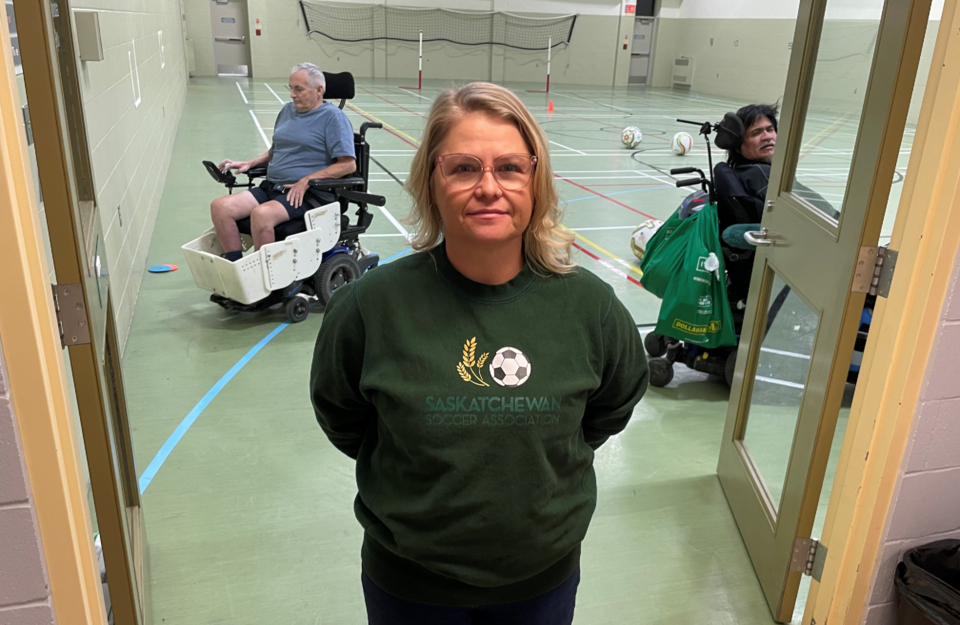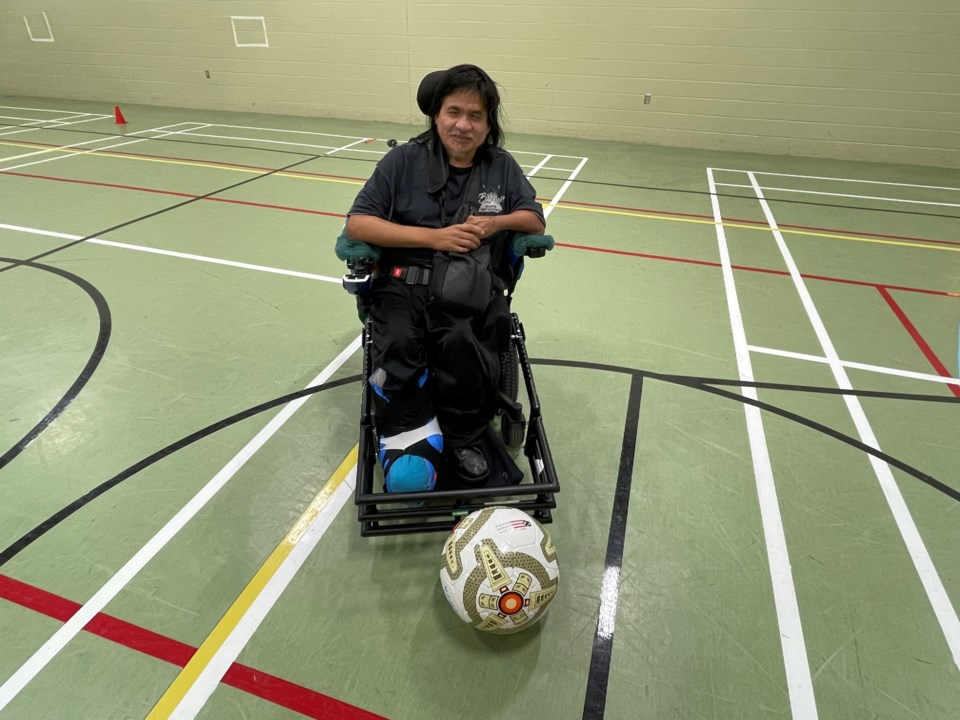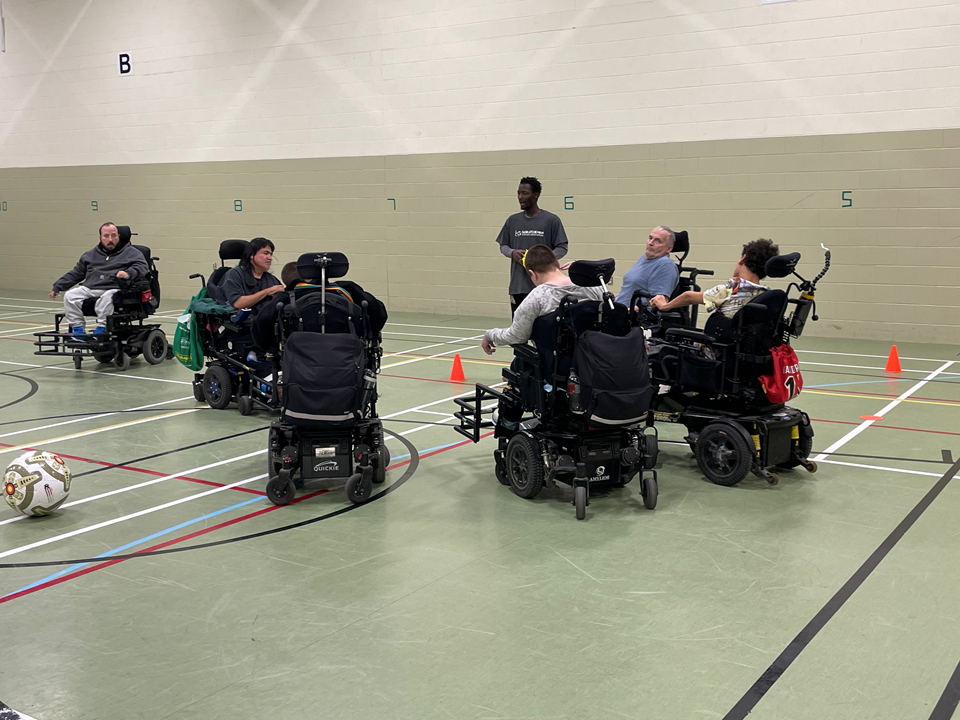REGINA - The Saskatchewan Soccer Association is giving people with mobility impairment a chance to play the game they love, powerchair soccer.
Powerchair soccer comprises of four athletes on each team trying to hit a 13-inch ball past the goalpost, where each side has a goalie. The game is played in two 20-minute halves.
The athletes use powerchairs funded through the Sask. sports grants. Each chair costs nearly $13,000 CAD, and the league has access to various guards that attach in front of each powerchair.
Jennifer Wood, IDEA coordinator with the Sask. Soccer Association discussed the meaning behind a sport that gives people a chance to play a unique style of soccer.

"It's really important [as] everyone deserves a chance to participate in sports, my friend, and I always say sports [is] a platform. It builds so much more about each person. It gives people a community an opportunity to get out of the house and just be [active]."
The programming runs weekly at the Wascana Rehabilitation Centre in Regina. Students from the University of Regina kinesiology program volunteer to aid the players, while coaches train the players on their techniques and teach the rules of the game.
One of those coaches works for the powerchair soccer league in Alberta. Wood mentioned how the province has multiple competitive powerchair soccer teams, so the insight the coach gives them has been valuable.
Wood also discussed the reason behind her decision to join the program. She worked with the Sask. Wheelchair Sports Association for around five years and noticed a lack of sports for powerchair athletes to participate in. So when a position opened for the program through the Sask. Soccer Association, Wood jumped at the chance to coordinate it. She finds this as a "neat way" to be a part of a sport with inclusion, diversity, equality and accessibility.
The lack of sports for powerchair athletes in Sask. was in large part due to the tragic passing of Chris Pearson years ago. Pearson was a player in the wheelchair sports community and "an incredible advocate for sports," said Wood. At one point, Pearson ran programs for athletes with mobility impairment.
One wheelchair player who felt its impact was Jamie McKenzie, who is currently participating in powerchair soccer himself.

McKenzie said, "he [Pearson] meant a lot to the community. He brought the power[chair] soccer in, but he never got to see the dream of seeing it really go very far."
McKenzie has been vocal about growing the sport and starting a league one day. He started participating in powerchair soccer because it lets him be active while playing sports.
He added Sask. lacked any powerchair soccer sports until the recent program introduced by the Sask. Soccer Association.
McKenzie eventually wants to become a coach for the sport, but he is more focused on learning the game and helping it grow first.
McKenzie and Wood are planning to head to Saskatoon in February to attend a one-day festival where the players from Regina face powerchair soccer players from Saskatoon.
Right now, the players in Regina scrimmage and test their wheelchairs. The test ensures the players do not go over the speed limit for the game, which is 10 mph.
If Wood could obtain her goal for the sport in five years, she would love to have four teams in the province play against each other monthly in different areas while continuing the weekly program.
While her dream is far away, Wood is encouraged by the interest in the program. She said 12 or 13 people in the Regina area came out to try the sport this summer. Wood added that one of the players in the program comes all the way from Swift Current.
As for McKenzie, he would love to see Pearson's dream of growing wheelchair sports come true "because he’s the one who started it back [all those years ago]."




